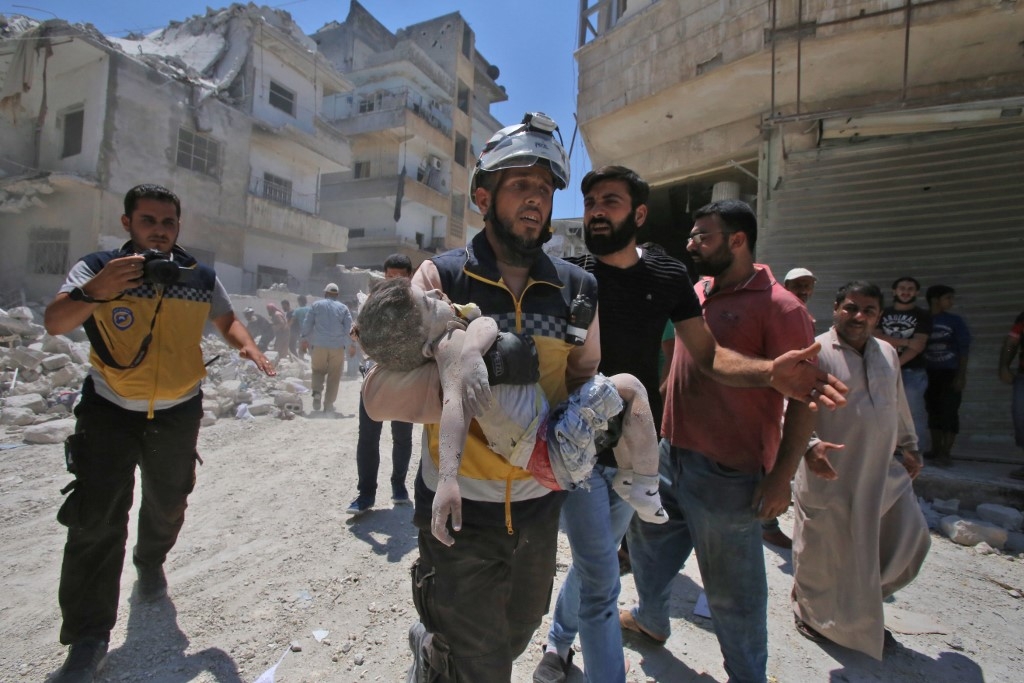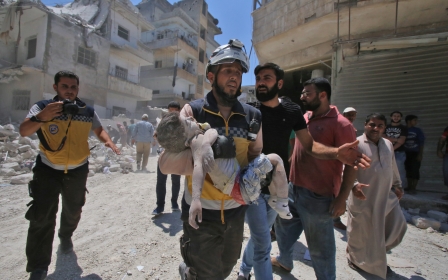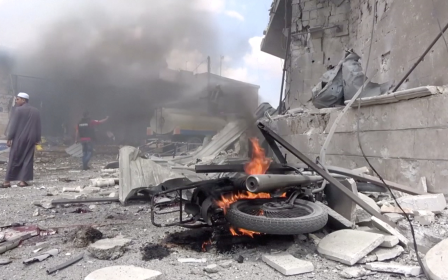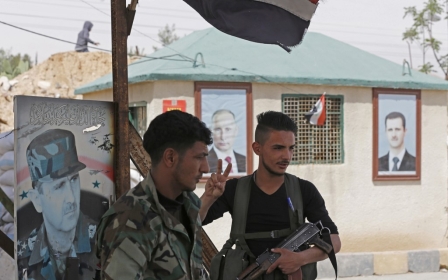Syria War: White Helmets head condemns Russian 'disinformation campaign'

Syria's White Helmets on Thursday decried Russia's "disinformation campaign", a day after the Russian embassy's Twitter account in Syria was temporarily suspended after saying the rescue group was faking images of bombings.
"Russia has continued to wage a bitter disinformation campaign against humanitarian groups and journalists," Raed Salah, the leader of the group formally known as the Syrian Civil Defence Forces, told reporters.
"First they claim they are not shelling us; then claim to be bombing terrorists; then say the regime is liberating us, and now claim to target Jabhat al-Nusra weapons depots," Salah said.
In the past three months, Syrian forces, flanked by Russian allies, have ramped up their campaign to take control of rebel-held areas in north-west Syria, killing at least 450 civilians and displacing more than 440,000.
Dozens of rescue volunteers in Idlib have also been killed and targeted by Russian double-tap attacks, a tactic in which drones or war planes attack a site and then attack again as people carry out rescue work.
Saleh added: "Among the hundreds killed include 200 children. We don't like talking about numbers but when you say 200 children, you are talking about 200 futures destroyed, 200 teachers losing their pupils, 200 mothers and fathers losing their child."
Targeting of UN hospitals
Salah's comments come after two-thirds of the UN Security Council, including the US, Britain, and France, on Tuesday demanded an investigation into attacks on UN-supported medical facilities in northwest Syria.
Britain, France, the US, Germany, Belgium, Peru, Poland, Kuwait, the Dominican Republic and Indonesia delivered a demarche - a formal diplomatic petition - to UN Secretary-General Antonio Guterres over the lack of an inquiry into attacks on UN-supported facilities.
During the session, Mark Lowcock, the UN's emergency relief coordinator, described the deconfliction process, a mechanism designed to minimise civilian casualties, as "ineffective" in preventing civilian deaths.
He also quoted from a letter from the Syrian government, which called on the UN to take off more than a hundred hospitals from the deconfliction zone because they had been allegedly taken over by "terrorist groups".
"In spite of our efforts to work with parties to the conflict to prevent attacks on civilian objects and humanitarian workers, I have come to the conclusion that in the current environment deconfliction is not proving effective in helping to protect those who utilise the system," Lowcock told the Security Council.
The deconfliction mechanism was put in place to avoid the targeting of humanitarian structures by giving the location coordinates to hospitals and schools to warring parties involved.
But critics fear the list is being used by the Russian and Syrian government to target hospitals and schools in north-west Syria.
Middle East Eye propose une couverture et une analyse indépendantes et incomparables du Moyen-Orient, de l’Afrique du Nord et d’autres régions du monde. Pour en savoir plus sur la reprise de ce contenu et les frais qui s’appliquent, veuillez remplir ce formulaire [en anglais]. Pour en savoir plus sur MEE, cliquez ici [en anglais].




